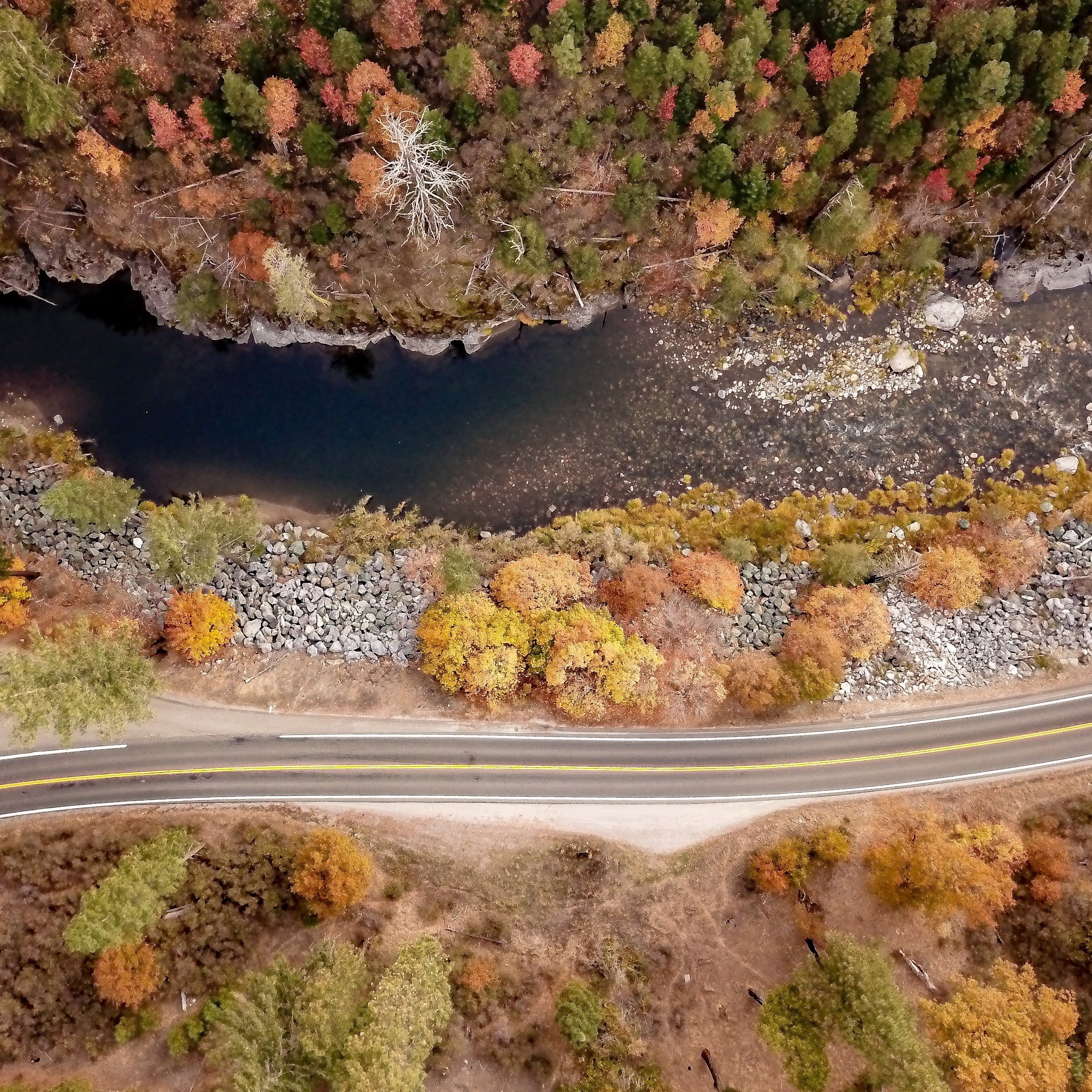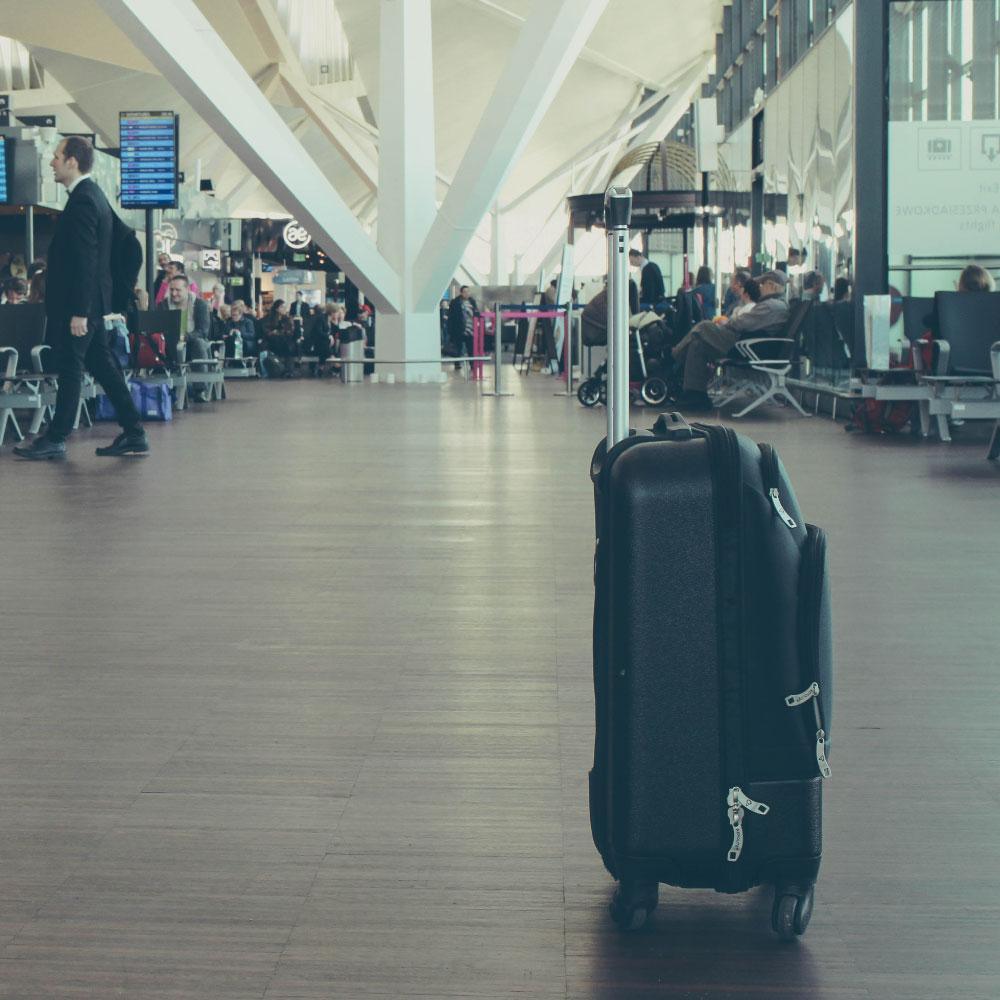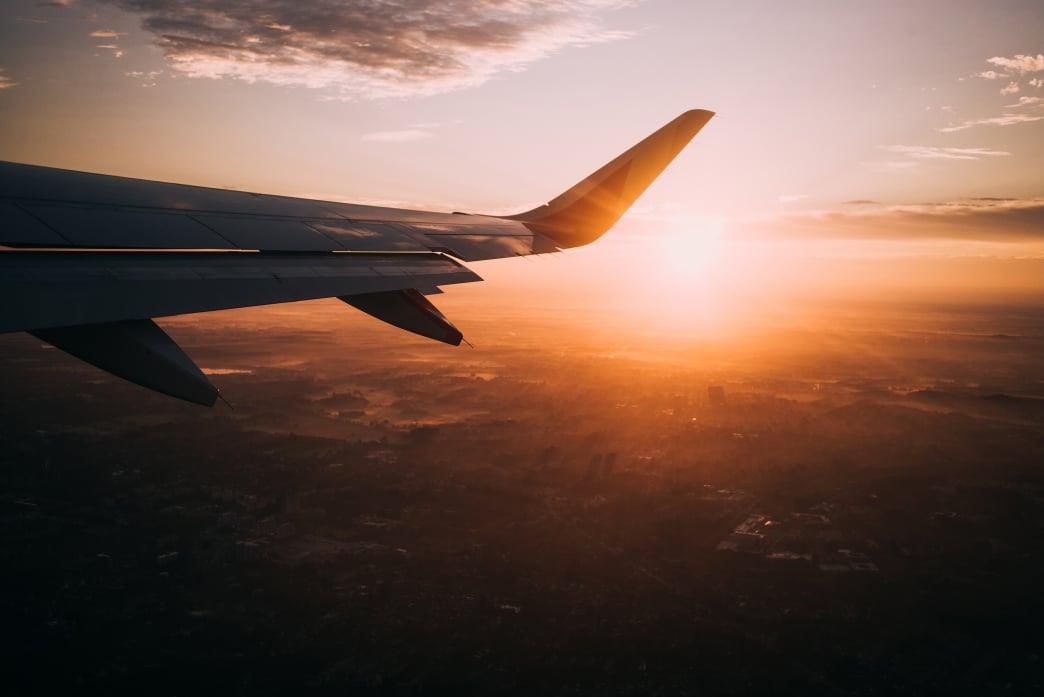Africa is the second largest continent in the world with 54 countries, 1.2 billion inhabitants, 11.73 million miles of beautiful landscape, unique culture and many MANY awesome things to see and do! Africa is an amazingly gorgeous continent, filled with incredible sites and awesome adventure - no matter what you’re looking for. Seeking adventure? Africa houses some of the most incredible mountain scenery. Looking for beachfront luxury? From Kenya to South Africa, Africa’s beachfront is amazing with some of the clearest and warmest waters anywhere in the world. Love animals and nature? I’m sure you’ve seen enough Discovery Channel to know that Africa is home to the most exotic wildlife, anywhere.
If you’ve never visited the “Motherland” continent, forget everything that you think you know. A well-planned trip to Africa is a trip you will never forget, and one that can’t be replicated by visiting anywhere else in the world. Ready for your trip? Great, grab your travel pillow, relax and get comfortable, and get ready for a life-changing experience. We want to make sure that you’re well prepared and able to really experience the most beautiful elements that Africa has to offer. When it comes to traveling through Africa, there’s no better tips than those that come directly from people who have spent time there personally! We asked 8 frequent travelers to tell us about their experiences traveling through various countries in Africa, and here’s what they had to say!
Chelcie S Porter of Travel Therapy Tours
Reason for Visiting: “I am a digital nomad and wanted to work while teaching dance in the slums of Kibera.”
How to Prepare: “Be sure to have your visa paperwork taken care of. Don't bring valuables that you don't need, get plenty of rest, it's likely to be a long flight - have your taxi from the airport pre-arranged!”
Must-Try Foods: “You must try local food. If you're a meat-eater then nyama choma is the most popular food. I'm a vegetarian, so I fell in love with mukimo, njahi, mchicha, and of course, chapati and ugali.”
Places To Visit: “Nairobi has an amazing arts scene, but don't spend all of your time in Nairobi or you'll be missing out. Head to the coast of Kenya to cities like Mombasa and Watamu and get yourself into an authentic village visit (not with a resort) if you want to see the true heart of Kenyan people and culture.”
Interacting With Local Residents: “Kenyans are mild mannered, but don't let that fool you. You'll find the culture much less aggressive than West African or Caribbean cultures. People talk softer and aren't physically aggressive, but don't let that stop you from standing your ground if you disagree. When in Nairobi, haggle constantly - the price given to you is 3-10 times higher than the real price.”
Unique Insights: “Kenya's culture is varied so be open to exploring and learning. The country is home to 43 different tribes!”
Other Tips: “Kenya is beautiful and diverse but most miss out by only seeing the safaris. You can see many of these animals simply by driving across the country!”
Tabby Farrar of justcantsettle.com
Reason for Visiting: “Volunteering first, with a charity called Thrive Africa who I was assisting with childcare for abandoned children, as well as helping to build libraries for schools. When I returned it was purely to travel for pleasure.”
How to Prepare: “Don't forget your mosquito net. Take a backpack, not a suitcase, because you'll struggle to drag a suitcase behind you on a lot of the terrain, even in the cities! Women should pack fairly modest clothing - things that cover the shoulders and knees, for the most part. You'll need a lot of sunscreen and mosquito repellent. A handheld fan can be a lifesaver. If you're going off the beaten track it's a good idea to bring water purifiers, as even the water you buy in plastic bags to drink isn't always treated like it says it is. ”
Must-Try Foods: “You HAVE to try 'redred', an incredible, filling bean stew made with red palm oil. It's something I've tried to recreate ever since I first tasted it and have never quite been able to get it right. Jollof rice is a definite West African staple food, and I really enjoyed the local favourite 'fufu' made from cassava and plantain - although this isn't to everyone's tastes. Watching the process of it being made is a spectacle, as it often involves two people taking it in turns to smash the ingredients together using a wooden pole several feet long!”
Places To Visit: “The castle at the Cape Coast is a harrowing reminder of the horrors of the slave trade and an absolute can't-miss if you're in that area. It's emotional, very moving, but unmissable. For more lighthearted experiences, I highly recommend trekking in Mole National Park at the other end of the country, where you can see elephants eating small trees and spot all manner of exotic wildlife. There's also the Boabeng Fiema monkey sanctuary where wild mona monkeys will come and eat peanuts out of your hand, and you can see black and white Colobus monkeys running around. Swimming in the Kintampo Waterfalls is a good way to cool down on long journeys from the North to the South and vice versa, and the topless Tengzug Shrine situated not far from a village who still practice voodoo has mind-blowing views. No men allowed though - sorry guys. You'll need a head for heights to get there and to not mind a bit of scrambling up the hillside - as well as taking your top off before you slide into the shrine itself - but it's a great experience.”
Interacting With Local Residents: “Ghanaian people in my experience are as warm and welcoming to visitors as any other nation, but it's important to be respectful of cultural differences by doing things like not swearing and by dressing modestly.”
Unique Insights: “The mixture of religions and the differences in lifestyle between those who live in the cities and those who live in the distant countryside are immense. The only way to fully grasp it is to go and see for yourself. ”
Other Tips: “Be prepared for power cuts! They are frequent, and become a bit of fun if you're ready with a torch to tell ghost stories in the dark. You may also find that even in guesthouses, running water is not a constant, and if it is, it won't often be hot - it'll depend a little on your budget and the type of venue you stay in, but if you're a budget traveller like me, be prepared to 'shower' using a two-litre bottle of water when needed!”
Nora Livingstone of Animal Experience International
Reason for Visiting: “I was in Sierra Leone, Kenya and Malawi for business and then pleasure. I was setting up partnerships with community conservation programs. I was volunteering in Uganda on a forestry program and that also lead to a vacation. I have been lucky enough to always add vacation to the end of my business trips.”
How to Prepare: “Bring a water bottle with you and a cloth bag. Many countries don't have the same type of recycling infrastructure that you may be used to. Creating more waste is unnecessary so don't buy small bottles of water or one-use plastic bags. Never try to bring animal products home with you. When the buying stops, so will the poaching.”
Must-Try Foods: “Always try the local food in the country you are in. Every country in Africa is so different. Different history, geography, culture, language and food. One of the best ways to really experience culture is to break bread with people and ask them about their local food. Meet new people, learn more about the country that is hosting you and find a new food you didn't know you loved.”
Places To Visit: “Ask thoughtful questions about the people you meet and the animals around you. Don't encourage bad behaviour by visiting shops or attractions that have animals chained up as tourist attractions. If something doesn't feel right then don't do it. If you see a child working who should be in school then contact ChildSafe, they can have local investigators come and help the child and the family. Visit women's co-ops and fair trade/ community run shops. Use your tourist dollars to support ethical, safe, and sustainable industry and enterprise.”
Interacting With Local Residents: “Remember that you are a visitor to this region. Ask questions and learn more about the country you have decided to visit. Like mentioned above, make sure you are supporting ethical business and make good choices with your tourist money. Remember, the people you see are not actors who are on display for you. They are normal people living their lives. Please be gracious if they say they would rather not have their picture taken.”
Unique Insights: “Every country is unique. Spend some time reading about the country's history pre and post colonization. Understanding the country's culture as well as their history is important in truly getting to know the place you are visiting. It will also help you decide where you would like to visit when you are there. You may find that a safari to see the animals is important to you but it may also be important for you to learn more about the country's independence and freedom from colonial rule.”
Other Tips: “Be open to new experiences, but don't leave your ethics at home. If you wouldn't use single use plastic bags at home, bring a cloth bag with you. If you wouldn't buy bottled water at home, then bring a water purification aid with you. If you only shop fair trade at home, then seek out fair trade and community owned shops when you travel. If you don't believe that animals should be exploited for tourists when you are at home, then don't take part in volunteering for or supporting safaris that bait or trap animals.”
Lily Seglin of Emerging Insider
Reason for Visiting: “At the time, I was serving as a Peace Corps Volunteer in neighboring Swaziland and desperately needed some time at a beach.”
How to Prepare: “Bring something to read (long buses), and have an understanding of the history of the country. Mosquito repellent is a must-have, as are Malaria pills. Mozambique is highly Malarial, so taking preventative measures is a must. Don't bring anything you'd be devastated about if it got lost/stolen/damaged/dirty. Bring a Portuguese-English dictionary. Most people speak Portuguese and a local language, but English is rarely spoken.”
Must-Try Foods: “Mozambican food is incredible - one of the world's most underrated and delicious cuisines due to the country's historic location along spice trading routes. Peri-peri is the spice most commonly associated with the country. It's mind-numbing levels of spicy, so ease yourself into it. Start with peri-peri grilled chicken. Another must-eat is Crab Curry. Crab is cooked in a coconut milk and peanut sauce mixture for a taste that invokes India, Thailand, and the Middle East. Seafood in general is delicious, fresh, and very cheap. If you've ever wanted $5 lobster, now's your chance.”
Places To Visit: “Tofo Beach is my favorite spot in Mozambique. It's an 8-hour bus ride from the capital of Maputo, but completely worth it. Tofo beach is a long crescent of white sand facing the Indian ocean and the occasional fresh pineapple stand. Unlike beaches elsewhere in Africa, it's virtually hawker-free and almost completely free of other tourists, except for the hearty few that made the journey with you. It's not just a great beach though - Tofo is a great place for diving and snorkeling. It's one of the best places in the world to spot whale sharks, and the diving is of similar quality to Thailand but with almost no other people there.”
Interacting With Local Residents: “Learn a little bit of Portuguese. Knowledge of basic words can take you a long way. Buying a sarong is a good bet also - most women wear them even away from the beach.”
Unique Insights: “Like many places in Africa, Mozambique is influenced by its past. As a stop on the Swahili Coast, Mozambique attracted Indian and Arab traders for centuries before Portuguese colonization. The result is a blend of European, African, Asian, and Middle Eastern flavors and cultures.”
Other Tips: “Don't drive yourself around - there are lots of stories about police pulling over hapless tourists for a bribe.”
Thea Wingert of ZenTravellers
Reason for Visiting: “I visited it in July 2014 for 3 weeks for vacation.”
How to Prepare: “I recommend bringing a water bottle with a built-in filter. Having one in your bag means you can get water from everywhere, which is especially important when your bus or car breaks down - which will inevitably happen when travelling in Uganda. Carry extra copies of your passport too. Bring a sturdy cross-body bag and wear it under your arm when walking in the crowded markets of Kampala. Otherwise, Uganda is very safe and the Pearl of Africa is not to be missed. Don't bring a lot of clothes. They will make travelling more difficult and you can buy local clothes for next to nothing, while helping out a local business.”
Must-Try Foods: “Kampala has an incredibly diverse suite of restaurants for any budget and tastes. I loved The Lawns Wild Game and Barbecue Restaurant. While travelling around Uganda, you must try a "rolex" sandwich, which is a potato chapati filled with egg and sometimes meat. It is especially delicious if you add fresh avocado. I also loved "matoke" which is a side dish of cooked plantains that pairs exceptionally well with grilled meats from street stalls. Ugandans also pour a mean cup of chai tea, as well as hot coffee; especially in the Sipi Falls area where they grow and roast the coffee, making it about as fresh as it gets. Avoid eating jackfruit unless you know for certain that it is fresh and has been prepared properly - lest you end up waylaid for two days in a guest house bedroom, unable to so much as lift your head without needing to purge violently (like I did).”
Places To Visit: “Uganda is called the Pearl of Africa for a reason. Its lush forests, serene lake shores, and rolling mountains are breathtaking. I recommend doing a game drive in Murchison Falls National Park and then staying on the shores of Lake Albert. You can also take a boat ride on the Nile to where the mighty river squeezes through a tight gorge at Murchison Falls. Next on your list should be trekking with wild gorillas in Bwindi Impenetrable Forest which is an experience you will never forget. After slogging through the rainforest to get a closeup view of these beautiful animals, relax on the dreamy blue shores of Lake Bunyonyi. In Kampala, head over to the National Mosque and climb to the top of the minaret for an inspiring panoramic view of the city below. Afterward, spend some time ambling through the massive expanse of markets. Once the sun sets, take in some local culture at the Uganda National Cultural Centre and check out a dance, music, or theatre performance there.”
Interacting With Local Residents: “Ugandans are some of the friendliest people on the planet. Simply greet them with a smile and a ‘Hi, how are you?’ and they will be happy to show you their famous hospitality. Haggle with people over prices - it's part of the fun, but don't do it over produce in the markets. The prices are usually the same everywhere for food staples. As with everywhere else, learning a few words in Luganda will please the residents immensely. Ugandans are hard working and very proud of their country. Ask them about their lives, their culture and their dreams. They will be happy to share them with you.”
Tanner Knorr of Off Season Adventures
Reason for Visiting: “In 2015, I went as part of a group class trip through Boston University where we studied the tourism assets in the country, as well as the challenges and opportunities of the tourism industry in the Tanzania. In 2017, I went for business to finalize my partnership, meet the managers of the lodges, meet members of the communities, and take many pictures for advertisement and marketing purposes.”
How to Prepare: “Don't forget the basics - sunscreen, hats, sunglasses, a good camera, and extra memory cards. While the sun may not feel intense, Tanzania is right below the equator, so especially if you have fairer skin, the chances of burning are high. I highly recommend a good camera and extra memory cards, because I can guarantee that you will be taking more pictures than you anticipated. On average for me, I've taken around 500 pictures per day while in the parks. I would also suggest to try and only carry on your luggage. It's much easier to travel around from place to place while in the country, especially if you're traveling with a group. ”
Must-Try Foods: “Everywhere I've eaten in Tanzania has been amazing. There are often several courses of food and it is served family style at the table for dinner. The fruits and vegetables are delicious because most of them are grown right in the country.”
Places To Visit: “The main two wildlife reserves in the country are the Serengeti National Park and the Ngorongoro Conservation Area. You must see at least these two while in Tanzania. Nothing compares to the endless plains of the Serengeti and the huge Ngorongoro Crater, all teeming with stunning, majestic, and interesting animals. There are also a few lesser know, but still beautiful parks- Lake Manyara, Tarangire, and Arusha National Parks. These three are great if you want to avoid a bit more of the crowds, but all of the reserves are unique in their own way.”
Interacting With Local Residents: “Although English is spoken at many of the lodges and by your guide, try and learn at least a few words of Swahili. A little can really go a long way. Everyone I've met in Tanzania is warm and hospitable. They are wonderful people and very happy to share their country with you.”
Unique Insights: “There are two main cultures that I've noticed in the country - the city culture and the safari culture. There is definitely a bit more hustle and bustle in the cities, like Arusha. It can be exciting or overwhelming for some travelers. If you prefer to disconnect and experience mainly wildlife excursions, I'd suggest going into the parks, and perhaps even staying within them each night, right away. However, if you like to experience city life in different countries, then add a couple days at the beginning or end of your trip to see some of the sites.”
Other Tips: “The US dollar is accepted almost anywhere you go. Many lodges have WiFi in some capacity, in the main area of the lodge, or in the rooms, but try and disconnect. Chances are, you're going to be several hours (and time zones) away from home in a completely new and exciting country. Enjoy it!”
Linda Higdon of Global Heart Journeys
Reason for Visiting: “I started visiting Kenya in 2003 at the height of the Sub-Saharan AIDS pandemic. My purpose for going was to work directly with powerful Kenyan women as they provided critically needed new initiatives to address the orphan situation. I helped launch an organization that now reaches 12,000 children and has won a landmark case for girls’ rights.”
How to Prepare: “Concerning clothing to bring, I advise that people do not wear shorts in Kenya except when on safari. It is a respectful and reserved culture and for women, slacks, skirts, or casual dresses are in order. I rarely wear revealing clothing, because it is a formal culture even though it is poor. Kenyans put their best foot forward with whatever they have. I feel like we should, too. ”
Must-Try Foods: “Absolutely visit the Trout Tree Restaurant north of Nairobi on the way to Mount Kenya. It has the best pan-fried Trout and Tilapia I have ever eaten. It is situated like a huge tree house within a massive fig tree, surrounded by trout ponds. For meat-lovers you can’t miss the Carnivore Restaurant in Nairobi. They serve unique entrees such as rabbit, ostrich, crocodile, etc. It is all the meat you can eat! The game is completely legal. My favorite restaurant is located at the Fairview Hotel in the center of Nairobi, across from the Israeli Embassy. It’s called The Pango and serves a stunning 5-course meal with only the best wines, desserts and entrees. I love this place for its atmosphere and large candelabras on each table.”
Places To Visit: “There are beautiful safari parks and game reserves throughout Kenya. My favorite is the Samburu Game Reserve in North Central Kenya, named after the Samburus otherwise known as “The Butterfly People” whose delicate and colorfully adorned jewelry seems to dance around their necks. This particular game reserve has a luxury tented camp called Ashnil Samburu Tented Camp that is reasonably priced and perfectly situated to go on numerous safaris. My favorite animal in the park is the reticulated giraffe, which is only found here.”
Interacting With Local Residents: “This one is easy. My entire work life in Kenya is based on my ability to connect with the Kenyans through humor. They see us, foreigners, as stiff and unapproachable. Once you show them you are not, by simply looking them in the eye, especially the women, giving a huge smile and saying “Hi Mummy!” and ask them anything, all hell breaks loose and the fun begins. The key is, it is up to us as the visitors to grant them permission to open up. If not, they will remain very formal and very kind, but distant.”
Unique Insights: “Like many African countries, Kenya is a singing and dancing society. Everything is about joy, dance, the arts, and celebrating life and community. Once they see that we are willing to try (as ridiculous as we look) they love that we are validating their lives. It is from that point of connection that magic can occur and lives open up and discoveries are made. Any visitor to Kenya needs to remember that this country is a young democracy and just won its independence in 1963. Since then, it has had long periods of dictatorship by corrupt Kenyan leaders, so it is a country still finding its democratic legs.”
Other Tips: “Do not miss out on meeting the women in the villages and in the women’s marketplaces! Find a way to get a driver to a local women’s marketplace and just meander through it. The Kenyan women will be fascinated that you have opted to visit them. Ask them about their produce. Ask them who taught them how to weave their baskets and make their kiondos (traditional purse). Joke with them, smile with them and build relationships. They will share their recipes for arrowroot and want you to pay a dowry to marry their daughter. It is more fun than any safari drive, I guarantee. There is a hidden world in Kenya. I call them the ‘Erin Brockovich women’, working on the frontlines. These are people who you will never read about in the news or meet in the United States, but they are hard at it every single day and making seismic shifts for women and girls. They have shaped the country and brought down dictators. They have won landmark cases for girls’ rights. They have woven their culture back together after the AIDS pandemic destroyed societal ties. A little bit of research before leaving and a few emails will get you inside this amazing network of women. They all know each other and are completely welcoming. Once you know one, they will introduce you to the others. It’s a small but powerful network of women.”
Diane Chehab of Away From Africa
Reason for Visiting: “Business, pleasure, vacation and personal!”
How to Prepare: “You need a visa, which can be procured by mail if necessary, at the Cameroonian Embassy in Washington DC. Make sure you follow ALL instructions including sending a return envelope! Also, it is best to have local people to welcome you and help you find a trustworthy driver, etc. Cameroon is not a country geared towards tourism, like Costa Rica for example (which resembles Cameroon very much when it comes to nature!)”
Must-Try Foods: “Ndole - originally a Douala dish, but now almost the national dish, made with bitter leaf, groundnuts, dried tiny shrimp and meat, served with sweet or green plantains, boiled or fried, or cassava sticks (Miondo). In West Cameroon, at Kekem, the best suya (skewered meat) is served at outdoor "fast-food" restaurants. In Kribi, there is good seafood (in Douala, also). There is regional cuisine that some people like, others don't. Red palm oil sauce is an acquired taste. In Yaounde, I like Bois d'Ebène for simple local food (sort of like beef kabobs).”
Places To Visit: “In Douala, there is Doual'art, a cultural center which often has art exhibitions. There is a beautiful waterfall in West Cameroon: Ekom Falls, south of Bafoussam (a large town in West Cameroon). Also in West Cameroon, you can visit the Bandjoun Chiefdom, which retained the traditional Bamileke architecture. Foumban boasts the Sultan's palace, which is extremely interesting and includes a museum. Kribi beach is beautiful; it is about a 3-hour drive from Douala, maybe less from Yaounde. You can stick to the beach, or hire someone to take you up the river by canoe.”
Interacting With Local Residents: “Avoid mentioning local politics - that can get quite messy. Treat people with respect. Do not take photos of official buildings in Yaounde without permission. Sometimes you may encounter a problem taking a photo of something that seems innocuous.”
Unique Insights: “Unfortunately there is a lot of corruption, but I hope that would not affect a visiting tourist. As mentioned, it is a good idea to have someone ‘on-the-ground’ before you go, although even women have traveled there alone without encountering a single problem.”
Other Tips: “It is hard to describe a complex country in a few words. Cameroon is not your usual tourist destination, but it has a lot of beauty, and many wonderful people. The majority speaks French, but there is an English speaking minority.”
Africa is a huge continent with more natural beauty than you can see in a lifetime and enough amazing food to eat a different meal every single day. It is a continent of diverse culture, memorable scenery and the most incredible wildlife. Across every border (and often even with every border) is a new experience - and no matter where you’re going, an awesome adventure awaits you! Use these tips as you plan for your trip - see the sites, meet the people, and most of all, create memories that you will never forget!
















Leave a comment
This site is protected by hCaptcha and the hCaptcha Privacy Policy and Terms of Service apply.